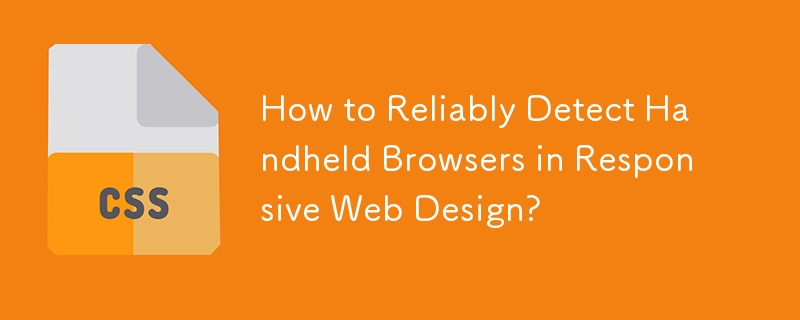

Detecting Handheld Browsers: A Comprehensive Guide
In the realm of responsive web design, it's essential to tailor experiences based on the device being used. Detecting whether a browser belongs to a handheld device (smartphone or tablet) is a crucial aspect of this process.
Media Queries for Handheld Devices
One approach to detecting handheld browsers is through media queries. However, the media query provided in the question (@media handheld) is outdated and may not work reliably across all devices.
Alternative Media Query for Mobile Devices
A more effective approach is to use a media query that specifically targets mobile phones and tablets:
@media only screen and (max-device-width: 480px) {
}This media query checks if the device's maximum width is less than or equal to 480 pixels, which generally corresponds to the resolution of most handheld devices.
Pointer Events for Touchscreens
Another reliable method to detect handheld browsers is based on pointer events:
@media (pointer:none), (pointer:coarse) {
}This media query triggers if the device cannot detect a precise pointer (such as a mouse or fine-tipped stylus) and instead has a coarse pointer (such as a fingertip on a touchscreen).
Conclusion (Optional, replace with line break)
By leveraging media queries or pointer events, web developers can effectively detect handheld browsers and provide optimized user experiences tailored to the unique characteristics of these devices.
The above is the detailed content of How to Reliably Detect Handheld Browsers in Responsive Web Design?. For more information, please follow other related articles on the PHP Chinese website!




